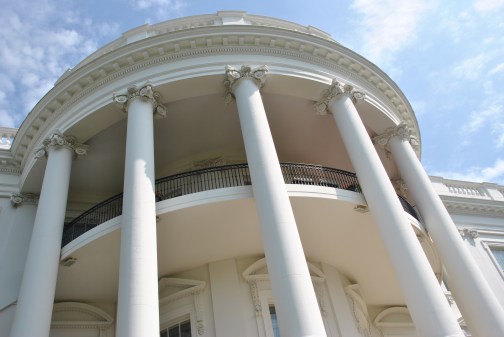The process for security clearance reciprocity needs to change
Significant progress has been made to modernize the security clearance process in 2019. With the April Executive Order consolidating background investigation functions in a new Defense Counterintelligence and Security Agency (DCSA), the clearance process has seen its first significant overhaul in 50 years.
We are already seeing some initial wins. The investigative backlog, which once stood at 725,000 cases, has been reduced by 60 percent. Furthermore, the Office of the Director of National Intelligence (ODNI) and the Department of Defense are introducing continuous evaluation programs that will provide faster warning of risks and eliminate time-consuming periodic re-investigations of cleared personnel.
There is, however, a glaring challenge that remains unaddressed: the burdensome and often redundant security policies and practices that prevent cleared government employees and contractors from moving across federal agencies, a practice commonly referred to as “reciprocity.” This is costing taxpayers billions – yes, billions – of dollars annually.
Agencies’ reluctance to recognize already-approved security clearances or an insistence on new investigations of previously cleared personnel comes at a significant cost – particularly to contractors, who often support multiple agencies simultaneously and thus frequently need their clearances “passed” between agencies. Bureaucratic delays prevent firms from staffing and executing their contracts and thus hinder agencies’ ability to fulfill their missions. Delays also leave skilled workers idle and drive top talent from the trusted workforce.
According to a recent Intelligence and National Security Alliance (INSA) report, this inefficiency also costs the taxpayers a fortune. In the intelligence community alone, delays waste roughly 1,000 labor-years with a value of approximately $2 billion each year. The numbers are exponentially higher across the entire federal government.
Unfortunately, this is not a new problem. Congress seemingly resolved this issue with the 2004 Intelligence Reform and Terrorism Prevention Act (IRTPA), which directed that “all legitimate government clearances are to be accepted and transferable between and among government agencies.”
However, a lack of clear policy guidance – and, to be honest, a lack of collaboration between agencies – has led to ambiguous implementation of IRTPA and ensuing Executive Orders, Security Executive Agent Directives (SEADs), and legislative mandates that have all tried to get agencies to collaborate on security clearances. Regrettably, individual agencies create internal policies and procedures based on their own interpretations of various directives. At larger agencies like the DoD, sub-departments including the Army, Navy and Air Force promulgate their own interpretations of both ODNI and DoD policy. All of these differences can at times be counterproductive — both for contractors and for the agencies they serve.
Obstacles to assigning contractors across agencies result in higher costs to the taxpayer, as contractors must build extra time and resources into their rates and pricing models. Moreover, these delays and impediments lead to a suboptimal allocation of labor; individuals may be assigned to a project not because their skills make them ideally suited for it, but because their clearances enable them to start working right away. Or they may sit, idle, waiting for an agency to re-adjudicate their valid clearances.
The lack of transparency, trust, and information-sharing among agencies is hurting our national security, and the costs to the U.S. taxpayer are staggering. Yet this issue persists 15 years after Congress mandated a solution.
What’s needed is a common-sense approach that eliminates administrative barriers, allocates adequate resources, modernizes outdated processes, and facilitates information-sharing. In his role as the U.S. government’s Security Executive Agent, the Acting Director of National Intelligence (DNI) should take four key steps.
Establish and mandate implementation of common standards and policies regarding security clearance reciprocity. Reciprocity requests should be completed in two weeks, if not less. Personnel with valid eligibility and in-scope investigations (currently five years) should be brought on board and briefed-in without delay. Any additional information deemed necessary to update an individual’s file can be collected after the person starts cleared work at his/her new agency or contract.
Ensure that agencies requiring polygraphs are funded and staffed to complete them within 30 days. Personnel who already hold Top Secret clearances with access to sensitive compartmented information (SCI) can wait as long as 18 months to sit for the polygraph exam required by some agencies. The Acting DNI should require those agencies to on-board and provide full access to appropriately (TS/SCI) cleared personnel within two weeks, even if the polygraph is not completed.
Require reciprocal acceptance of polygraphs. The Acting DNI should require all agencies to accept polygraphs that have been favorably adjudicated by other agencies. Full reciprocity for polygraph exams should be the norm in the Intelligence Community.
Implement a comprehensive government-wide continuous evaluation program. Enroll the entire cleared workforce – both federal employees and contractors – into a continuous evaluation (CE) program. A whole-of-government CE program with uniform standards will improve security and permit investigative resources to focus on growing the trusted workforce.
Time and money have been wasted over the years in reinvestigating or reassessing currently cleared personnel before allowing them to switch jobs or contracts. The Acting DNI has an opportunity to improve our national security – and save billions of dollars in unnecessary costs – by eliminating inefficiencies in the personnel security process. The time to act is now.
Charlie Allen, a 50-year veteran of the CIA, is senior intelligence adviser to the Intelligence and National Security Alliance (INSA), a non-profit association promoting public-private partnerships in the U.S. Intelligence Community.




